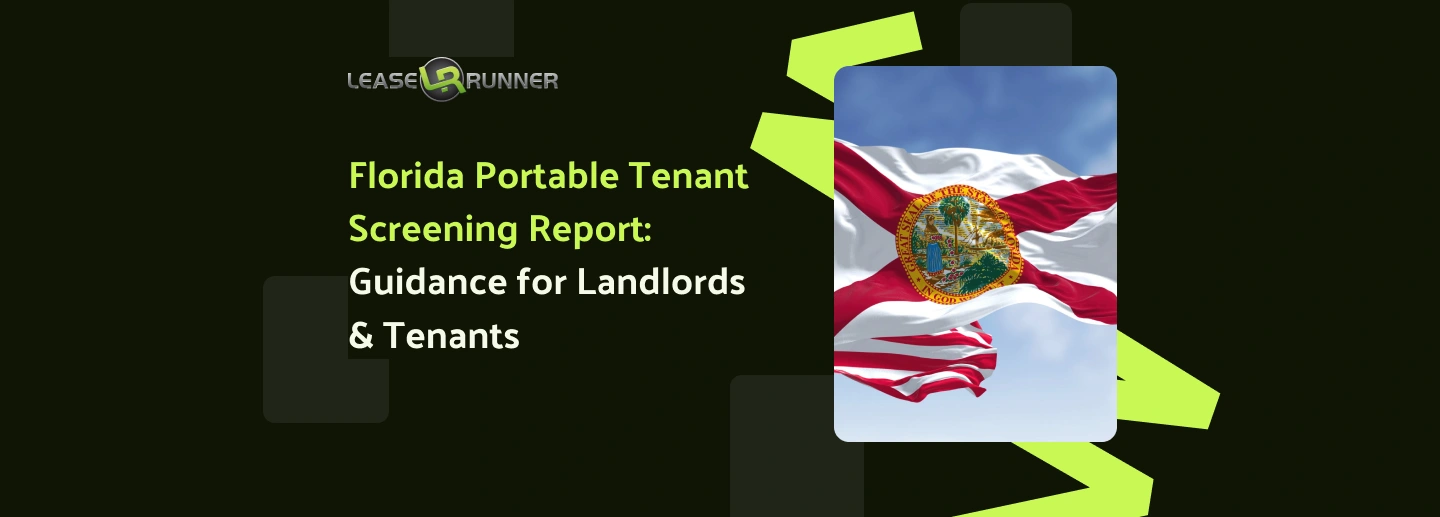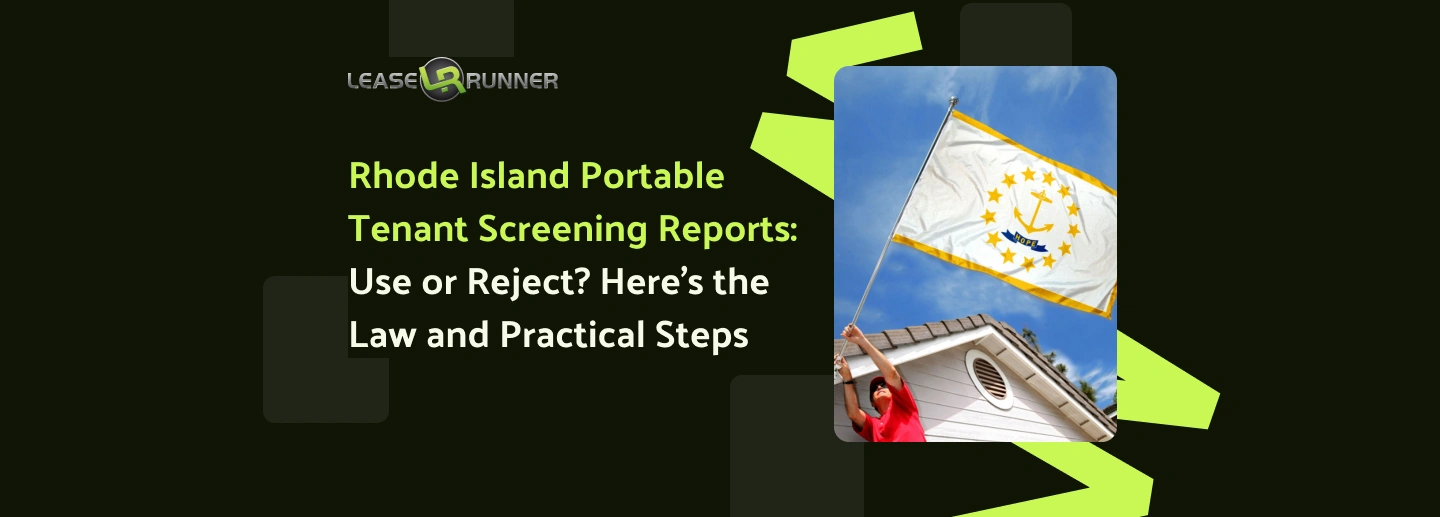A Florida portable tenant screening report allows tenants to pay once and use the same report for multiple rental applications, saving both time and money. With it, renters can easily share their credit, eviction, and background information with several landlords, which helps to speed up the approval process.
LeaseRunner offers reliable reports that are trusted by landlords across Florida. This approach helps tenants avoid repeated screening fees, while also providing landlords with a clear snapshot of a renter's history. Understanding Florida tenant screening laws ensures a smoother and more informed decision-making process for everyone involved.
Is a Portable Tenant Screening Report Required by Law in Florida?
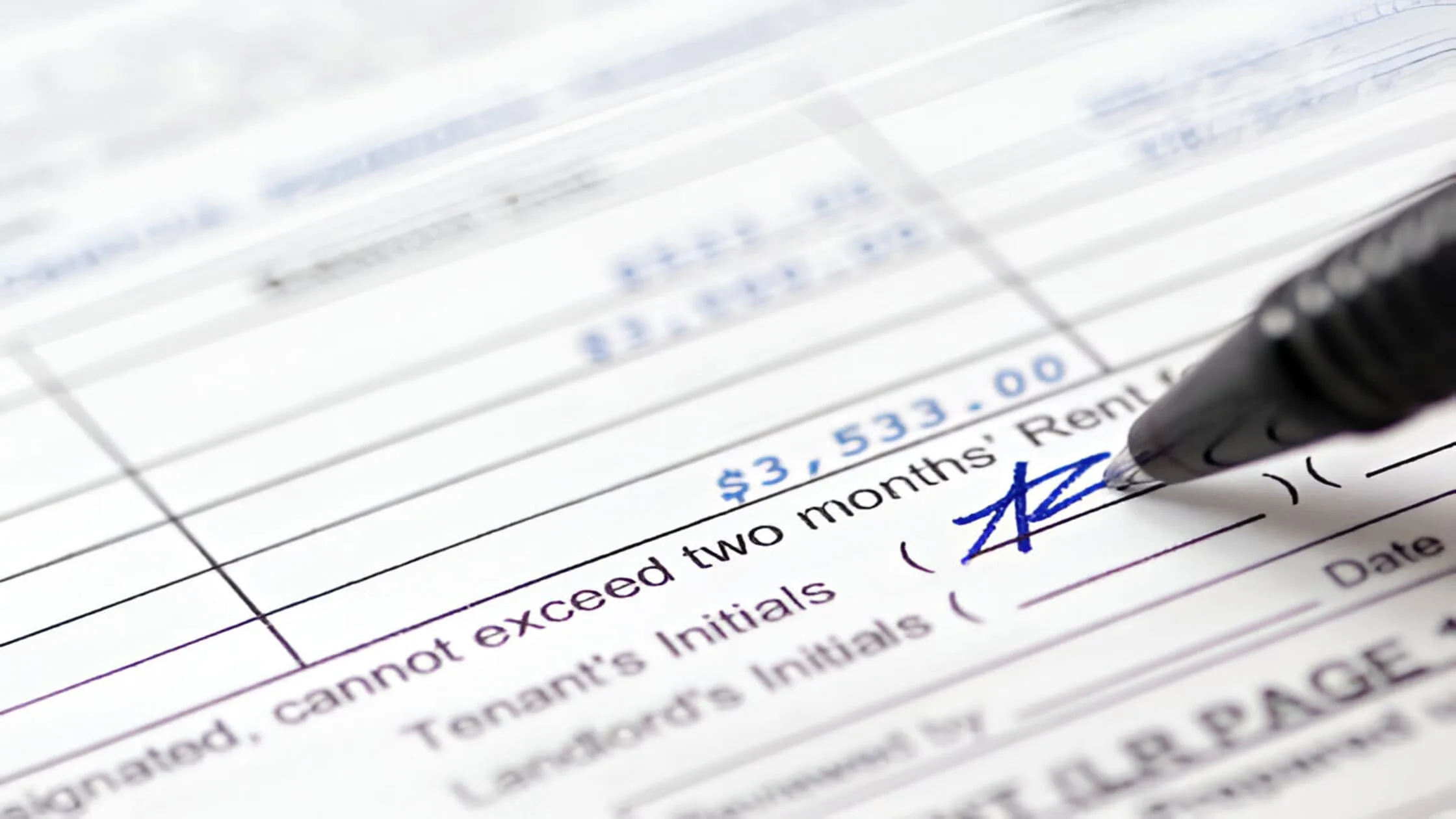
As of September 2025, Florida does not have a law requiring landlords to accept portable tenant screening reports (PTSRs). Although House Bill 43 (HB 43) once proposed allowing landlords to accept reusable screening reports, the bill was withdrawn and is no longer active. Instead, Senate Bill 362 (SB 362), which is still pending, sets a possible legal basis for reusable tenant screening reports effective July 1, 2025, if passed.
A Florida portable tenant screening report (also known as reusable tenant screening report) is a document that tenants pay for once and can use for multiple rental applications. It provides landlords with details like credit scores, eviction records, rental history, and employment verification. Tenants benefit by saving money and time, since they do not have to pay for new screenings with each application. However, since acceptance of PTSRs is not mandatory, landlords can choose whether to accept them.
It is important for both landlords and tenants to stay informed as legislation develops. Landlords should establish clear screening policies if they opt to accept PTSRs, such as setting minimum credit or income standards. Tenants should keep their screening reports current to improve rental chances. For the latest official information, consult the Florida Senate Bill 362 (SB 362) official page for updates.
Legal Framework Portable Tenant Screening Report in Florida
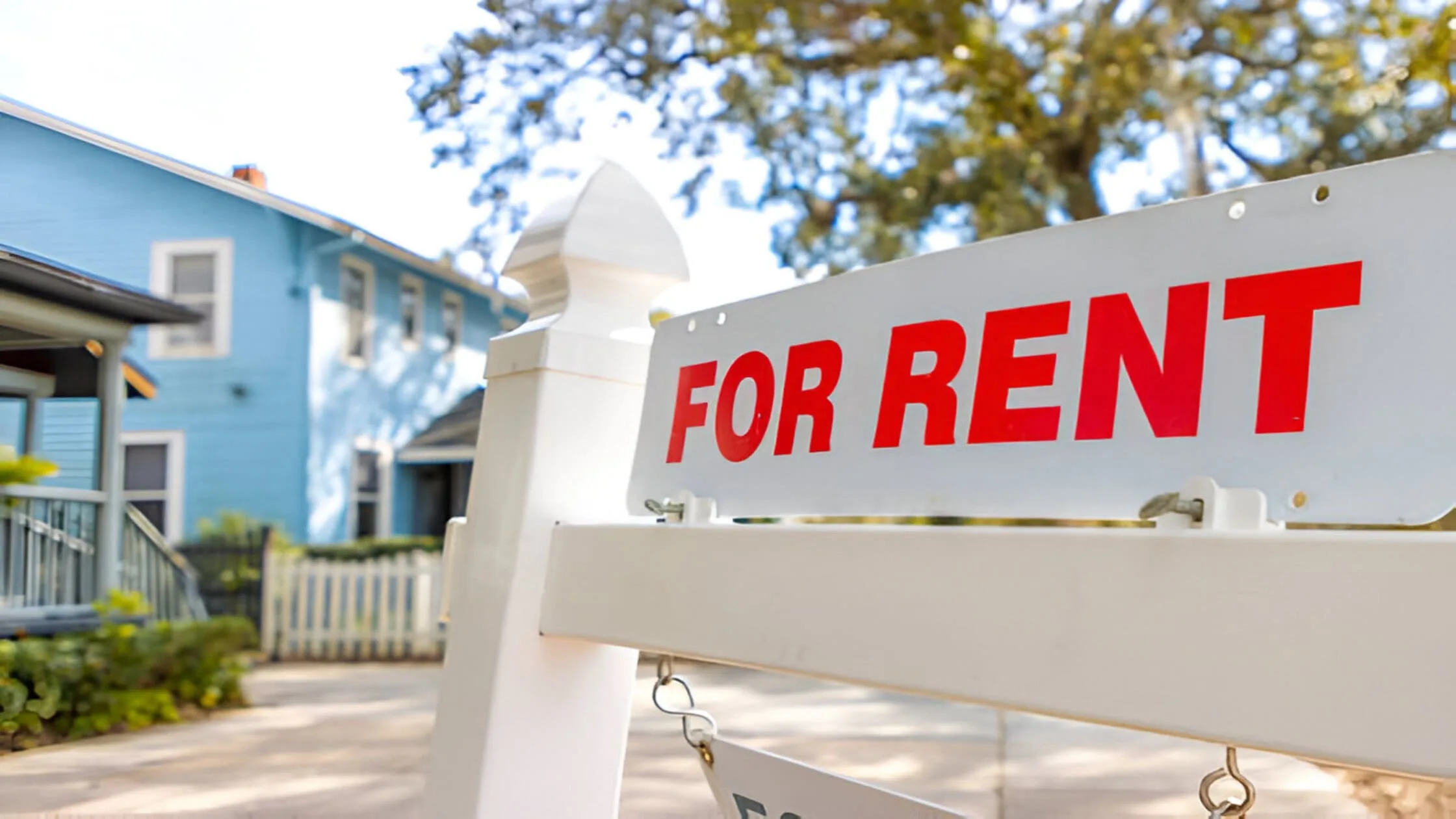
Understanding the rules around portable tenant screening reports in Florida helps both landlords and tenants know their rights and duties. These rules come from federal laws and Florida state laws. Together, they shape how tenant screening works.
Federal Level
At the federal level, tenant screening follows the Fair Credit Reporting Act (FCRA). This law protects tenants by ensuring their reports are fair and accurate. It controls how credit, background checks, and other tenant reports are used and shared.
The FCRA requires landlords and screening companies to get tenant permission before running reports. It also gives tenants the right to see their reports and fix errors. Portable tenant screening reports must follow these rules.
They combine important data like credit scores and criminal history. This protects consumers when using reusable tenant screening reports.
State Level
Florida has its own laws for tenant checks within landlord-tenant and fair housing rules. Here are some key points:
- Landlords must get clear tenant permission before doing any background checks for renters in Florida or credit checks.
- Fees tenants pay for screening should only cover the actual cost of the check and be reasonable.
- Florida does not limit how much landlords can charge for Florida rental application fees. However, it asks that these fees be fair and clear.
- It is illegal to discriminate against tenants based on protected traits like race or gender during screening.
- There is no law yet forcing landlords to accept reusable or Florida reusable tenant screening reports. They decide their own screening process.
How Portable Screening Works in Practice For Tenants?
Using a Florida PTSR can make renting easier and quicker. Tenants save time and money by sharing one report with many landlords. Instead of paying for new background checks each time, a tenant uses the same report when applying to many rentals. Here is how the process works in Florida.
Process to Obtain and Use a PTSR for Tenants
First, tenants pick a trusted company or platform. These follow both Florida tenant screening laws and federal rules like the Fair Credit Reporting Act (FCRA). Tenants fill out consent forms and pay for the screening service.
- Step 1 - Request the Report: The tenant asks for the PTSR from reputable tenant screening services like LeaseRunner. The report includes credit history, eviction records, criminal background, employment verification, and rental history. This matches what landlords look for during the Florida rental application process.
- Step 2 - Report Generation: The company compiles this information into one report. The report is usually good for 30 days. That means tenants can use it for many applications within a month.
- Step 3 - Share Report with Landlords: Tenants give the same report to multiple landlords. For example, a tenant wants to rent a condo, an apartment, and a townhouse. Online services provide a secure link or email invitation, allowing a tenant to share one PTSR with multiple landlords, which significantly cuts down the cost of rental applications and speeds up the approval process.
- Written Statement: Some landlords ask tenants to confirm in writing that all information in the report is still correct. This builds trust so landlords feel safe accepting a portable rental history report in Florida.
Important Things for Tenants to Know
Before starting the rental process, tenants should know several key facts. These facts are about portable screening reports and general rental screening:
- What Shows Up on a Tenant Screening Report: These reports typically contain several types of information. They include credit scores, which show how well tenants manage their debts. Eviction history reveals if tenants have been removed from past rentals.
Criminal background checks help landlords ensure safety. Employment verification confirms steady income. Landlord references provide insights about the tenant’s behavior and reliability. Having accurate and complete information in these areas boosts a tenant’s chances of approval.
- Average Time to Get a Tenant Screening Report: Tenants usually get their report within 1 to 3 days. This is after they submit consent and payment. This quick turnaround allows renters to apply promptly, important in busy rental markets.
- Accuracy and Updates: Keeping the report updated and truthful is crucial. Landlords might ask for recent pay stubs, job offer letters, or rental references to verify information on the report. Tenants should review their reports regularly and update them as needed to reflect their current status.
- Other Florida Rental Application Requirements: Even with a portable screening report, tenants usually have to fill out the rental application form. This form may require more documents, like: a government-issued ID, proof of income, or references. These may not be in the PTSR.
- Report Copies and Error Correction: Tenants should keep copies of their latest tenant screening reports. If errors appear in the report, tenants have the right to fix them. The Fair Credit Reporting Act (FCRA) gives them this right. Fixing errors helps avoid unfair denials and builds credibility with landlords.
Understanding these details helps tenants prepare well for rental interviews and questions from landlords. Using a Florida portable tenant screening report can reduce the stress and cost of applying for homes. It speeds up the process, making it easier to find a place to live.
Looking to get a complete picture of your rental history? LeaseRunner offers a full suite of services that provide landlords with the information they need to make a quick decision. Our reports include a comprehensive cash flow report and income verification, a thorough eviction check, and a detailed tenant criminal background check.
By using LeaseRunner's services, you can give your prospective landlord a clear and transparent view of your qualifications and help move the application process forward.
How Portable Screening Works in Practice For Landlords?

Using a portable tenant screening report, FL laws help landlords save time and money in tenant evaluation. These reports offer a clear look at a renter’s background. But landlords must follow steps to check the report’s validity and meet Florida laws.
Process to Verify Authenticity of PTSR for Landlords
To ensure a smooth and legally compliant rental process, landlords should take a few critical steps to verify the authenticity and accuracy of a PTSR. This due diligence helps protect your property and ensures a fair process for all applicants.
- Confirm Trusted Source: Check that the report comes from a reliable company. It must follow federal laws, like the Fair Credit Reporting Act (FCRA), and local Florida tenant screening laws. Companies like LeaseRunner meet these rules.
- Examine the Report Thoroughly: A landlord's due diligence should extend beyond a quick glance. Landlords should carefully review the PTSR to confirm it is professionally formatted, includes all required signatures, and displays a recent report date, ideally within the last 30 days. The report should also contain all necessary legal details to ensure it meets both federal and Florida state requirements.
- Request Tenant’s Written Confirmation: Ask the tenant to sign a written statement. This confirms the report is true and that no facts have changed since it was made. This helps landlords trust the report’s accuracy.
- Do Extra Checks if Needed: Even with the PTSR, landlords should still call old landlords or employers. For example, a previous landlord can confirm if rent was paid on time. Employment verification protects landlords from income-related surprises. For guidance on what to ask, consider our list of questions to ask tenant references.
- No Extra Fees for Screening Reports: Under the terms of the pending Senate Bill 362 (SB 362), landlords would not be able to charge renters application fees for accepting or reviewing a Florida reusable tenant screening report.
Legal Obligations for Landlords
Landlords must also follow specific legal obligations when screening tenants. Adhering to these regulations is crucial for ensuring a fair process, avoiding accusations of discrimination, and protecting against potential legal liabilities:
- Get Written Consent: They need permission before doing any background or credit checks beyond the PTSR. This follows Florida rental application background check laws.
- Avoid Discrimination: Follow federal Fair Housing rules and state laws. Screening methods cannot exclude people based on race, gender, religion, or similar factors.
- Use Consistent Screening: Use the same rules for all applicants. This ensures fairness and reduces legal risks.
- Inform Applicants if Denied: If an applicant is rejected based on information in a screening report, landlords have a legal obligation to inform them, which is known as an adverse action notification. The notification must be given to the applicant, including the name and contact information of the consumer reporting agency that provided the report.
- Protect Tenant Privacy: Keep screening results safe and private. Handle personal info carefully to comply with privacy laws.
In short, landlords can set clear rules on what scores or histories they accept. Using trusted platforms for portable rental history reports in Florida helps simplify screening. Staying up to date with Florida tenant screening laws avoids legal problems. Being open with tenants about the screening process builds trust.
By verifying reports well and following laws, landlords can make safer, faster rental choices. Using PTSRs, FL landlord-tenant laws benefit everyone involved.
Benefits and Risks: Landlord vs. Tenant Perspectives
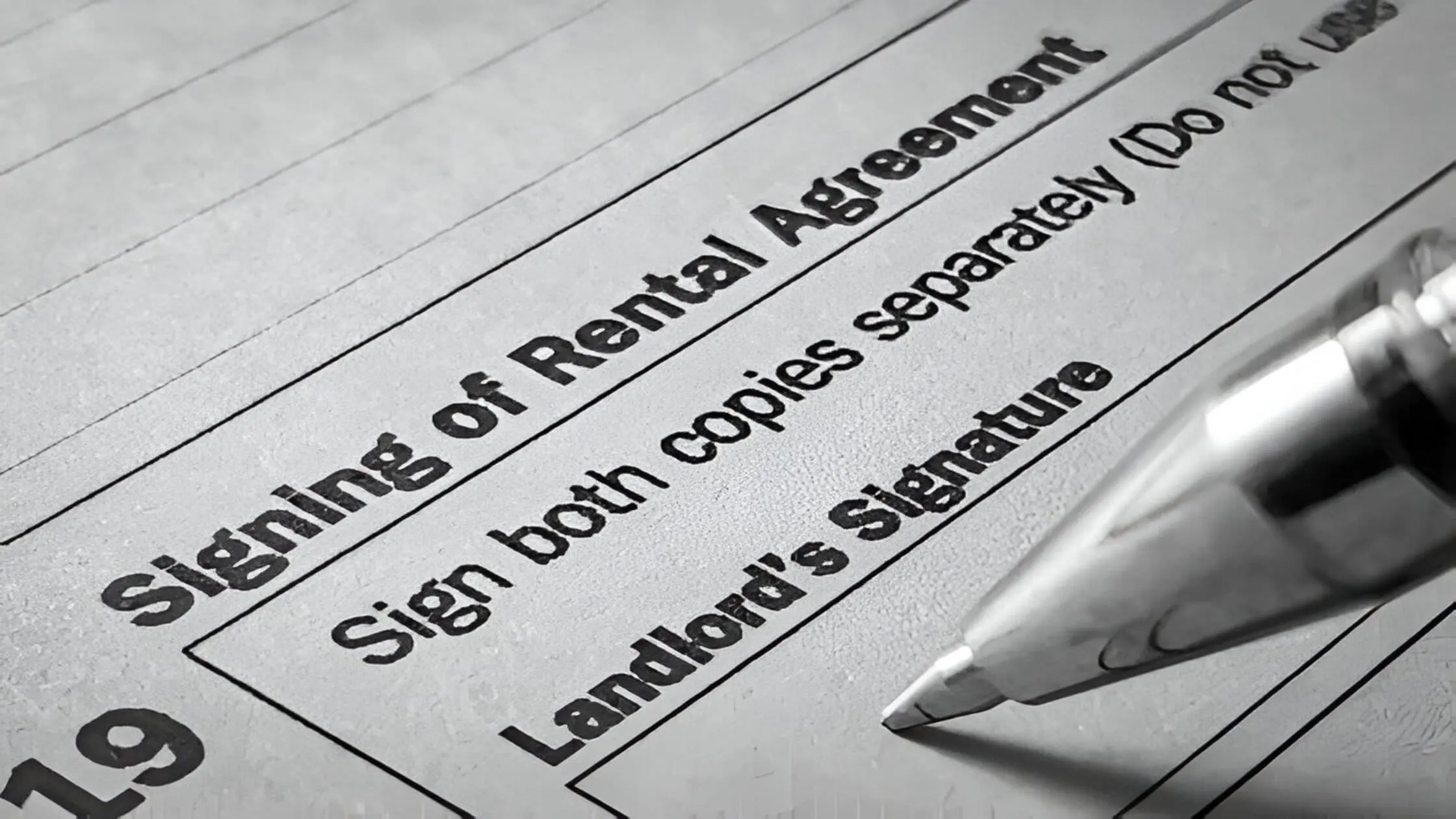
A Florida portable tenant screening report (PTSR) is changing how landlords and tenants handle rental screening. It helps make the process faster and cheaper. But both landlords and tenants face risks they must understand before using these reports. Here’s a detailed look at each side’s benefits and risks.
Landlord Benefits and Risks of Accepting PTSRs
Landlords who accept PTSRs can improve their rental screening, but should be aware of some issues.
Benefits:
- Speed Up Screening: Landlords receive a detailed, complete report quickly. This reduces delays from waiting for new credit or background checks. This is factually correct. However, it is important to remember that this process is only possible if the landlord voluntarily accepts the PTSR, as there is no law requiring them to do so.
- Reduce Redundant Work: Using one report for multiple applicants saves time and money. Landlords avoid paying fees for each background check. This makes managing applications easier and faster.
- Attract More Tenants: Tenants save money because they don’t need to pay screening fees repeatedly. Lower costs encourage more renters to apply. This gives landlords a wider choice of tenants.
Risks:
- Report Date Concerns: Landlords must ensure the PTSR is recent, typically within 30 days. Old reports may miss recent evictions or credit issues that affect trustworthiness.
- Loss of Application Fees: Some landlords depend on screening fees for income. Accepting reusable reports may reduce these fees, affecting revenue.
- Need Extra Verification: Landlords should confirm report details. This might include calling previous landlords or employers for references, which adds work.
Tenant Benefits and Risks of Using PTSRs
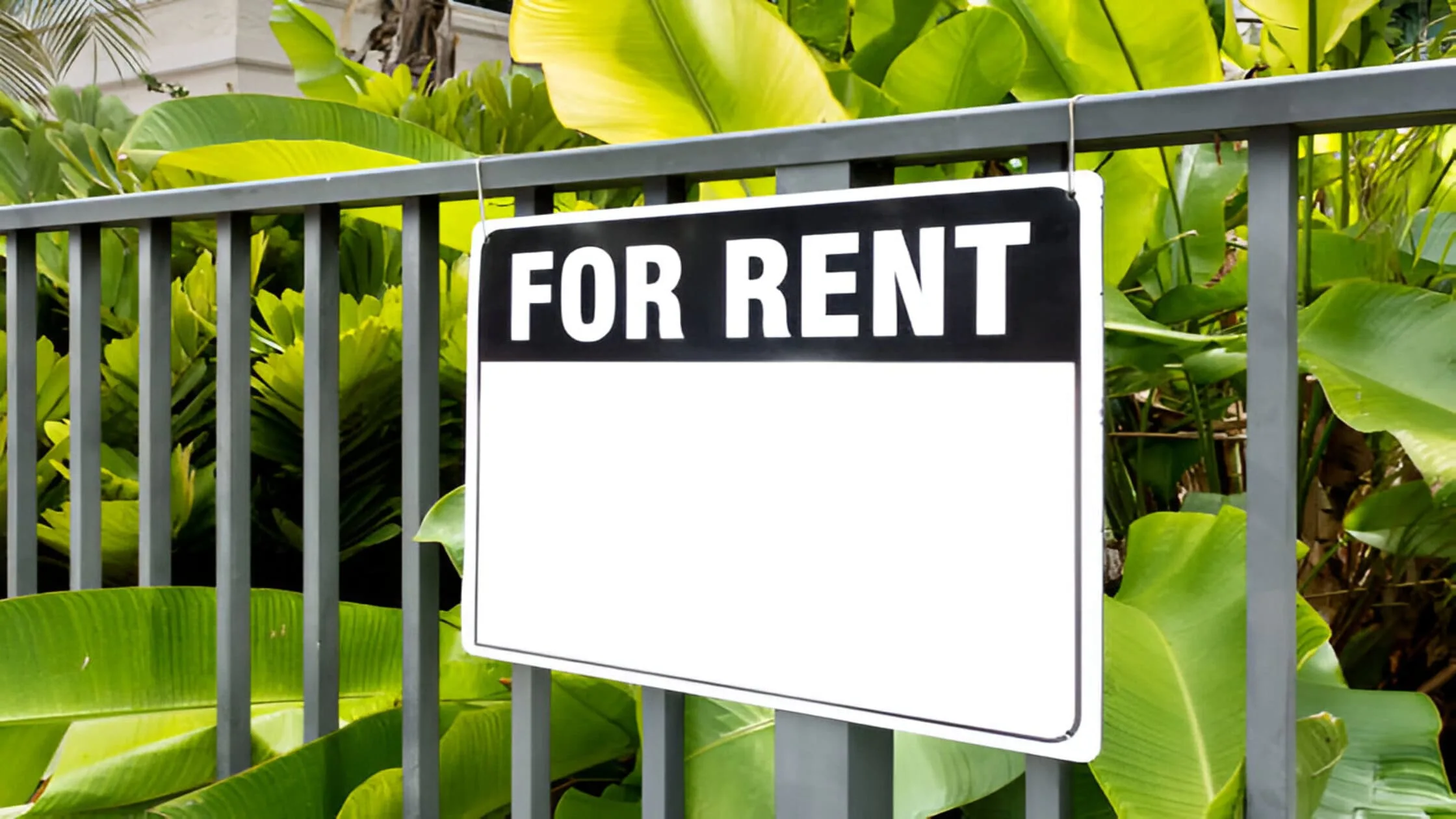
Renters also see advantages but must watch out for limitations.
Benefits:
- Save Money: Tenants pay once and use the same report for many applications. This avoids paying screening fees multiple times and saves significant money.
- Faster Applications: With a ready report, tenants get quicker responses and can apply to several places at once.
- More Choices: Tenants can send one PTSR when applying for apartments, condos, or townhouses, increasing chances of approval.
- Control Over Data: Tenants can review their reports ahead of time, correct errors, and keep information updated.
Risks:
- Short Validity Period: Most PTSRs last only about 30 days. Tenants must update or buy new reports frequently if searching longer.
- Extra Paperwork May Be Needed: Landlords often require supporting documents. These include pay stubs, IDs, or rental references. This is true even when a PTSR is used.
- Not All Landlords Accept PTSRs: Some landlords may reject portable reports. They prefer their own screening processes. This forces tenants to provide separate screenings.
Overall, landlords should set clear rules on when to accept reusable reports. This includes a minimum credit score and a clean eviction history. This helps them avoid risky tenants. Verifying reports helps prevent fraud and bad rentals. Tenants must keep their reports current and be ready to provide extra documents.
Good communication about screening helps everyone, making renting smoother. Understanding these benefits and risks of the tenant screening process aids landlords and tenants in finding the right fit faster and more fairly. For more details on how security deposits can be used to cover financial issues, see our guide on the Florida security deposit law.
PTSR in Other States: A Quick Comparison
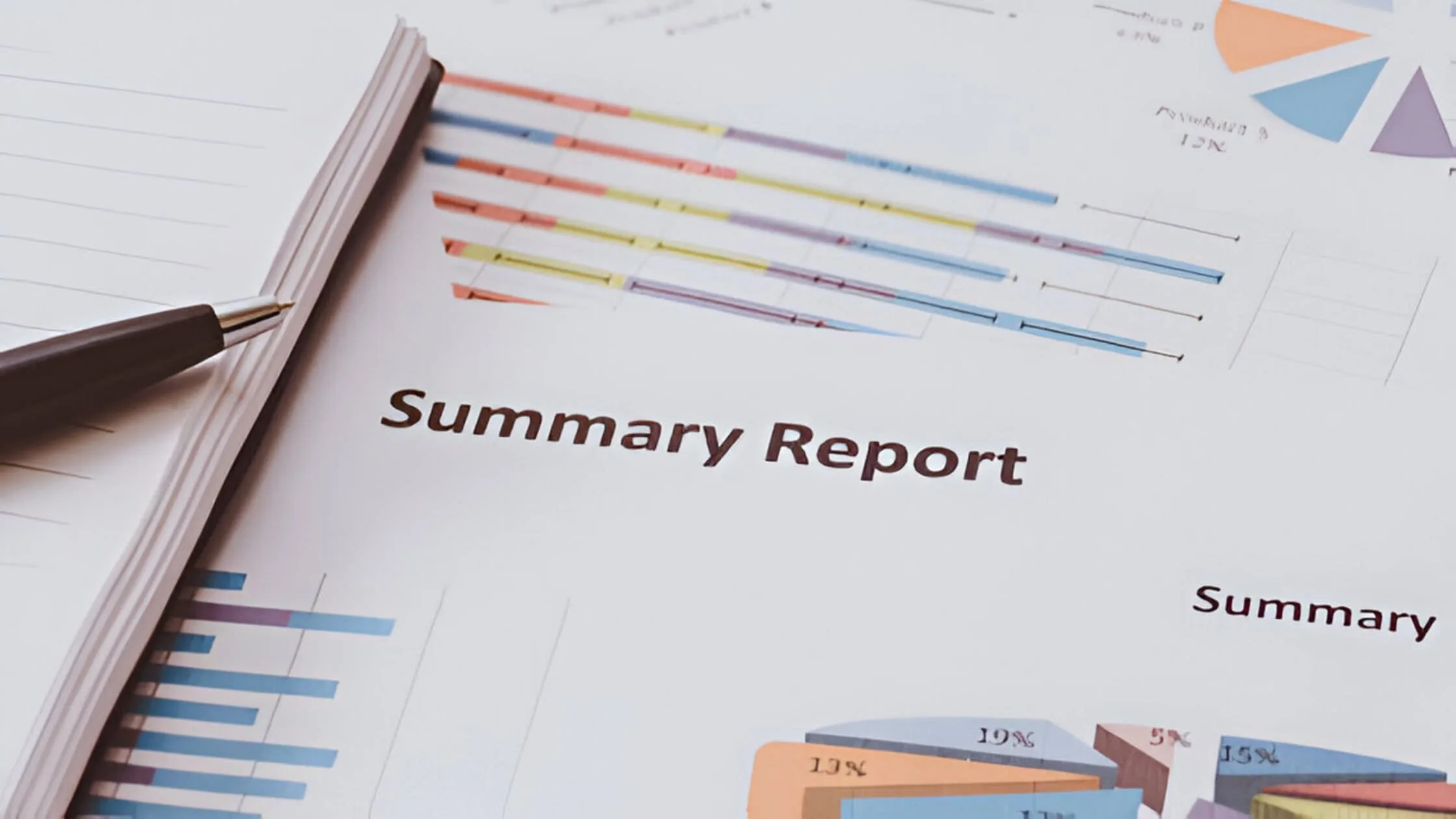
Several states have made more progress than Florida in setting rules for portable tenant screening reports (PTSRs). Illinois, Washington, Colorado, and New York have laws that require or define how landlords accept PTSRs. These rules help make renting simpler and cheaper.
They reduce repeated background and credit checks. This helps renters by lowering barriers and helps landlords by speeding up applications. To be clearer, here is a table comparing Florida’s portable tenant screening report (PTSR) laws with those of Illinois, Washington, Colorado, and New York:
This table highlights how these states are leading in adopting laws that make tenant screening easier and more affordable. Florida's Senate Bill 362 (SB 362), if passed, would be part of this trend, leaving acceptance optional while banning extra fees for accepting PTSRs.
For example, Illinois requires landlords to accept reusable screening reports under certain rules. Washington lets tenants submit PTSRs and stops landlords from charging fees if they accept them.
Colorado sets clear rules on what must be in the reports to keep them fair and accurate. New York encourages using PTSRs but still allows landlords to ask for extra screening.
Florida's Senate Bill 362 (SB 362) follows this national trend. It would support the use of Florida reusable tenant screening reports, but would keep acceptance optional for landlords. Still, how much PTSRs get used depends on future law changes. Industry groups like the National Apartment Association see more states making PTSRs a normal part of tenant screening.
Future Outlook for Florida PTSR
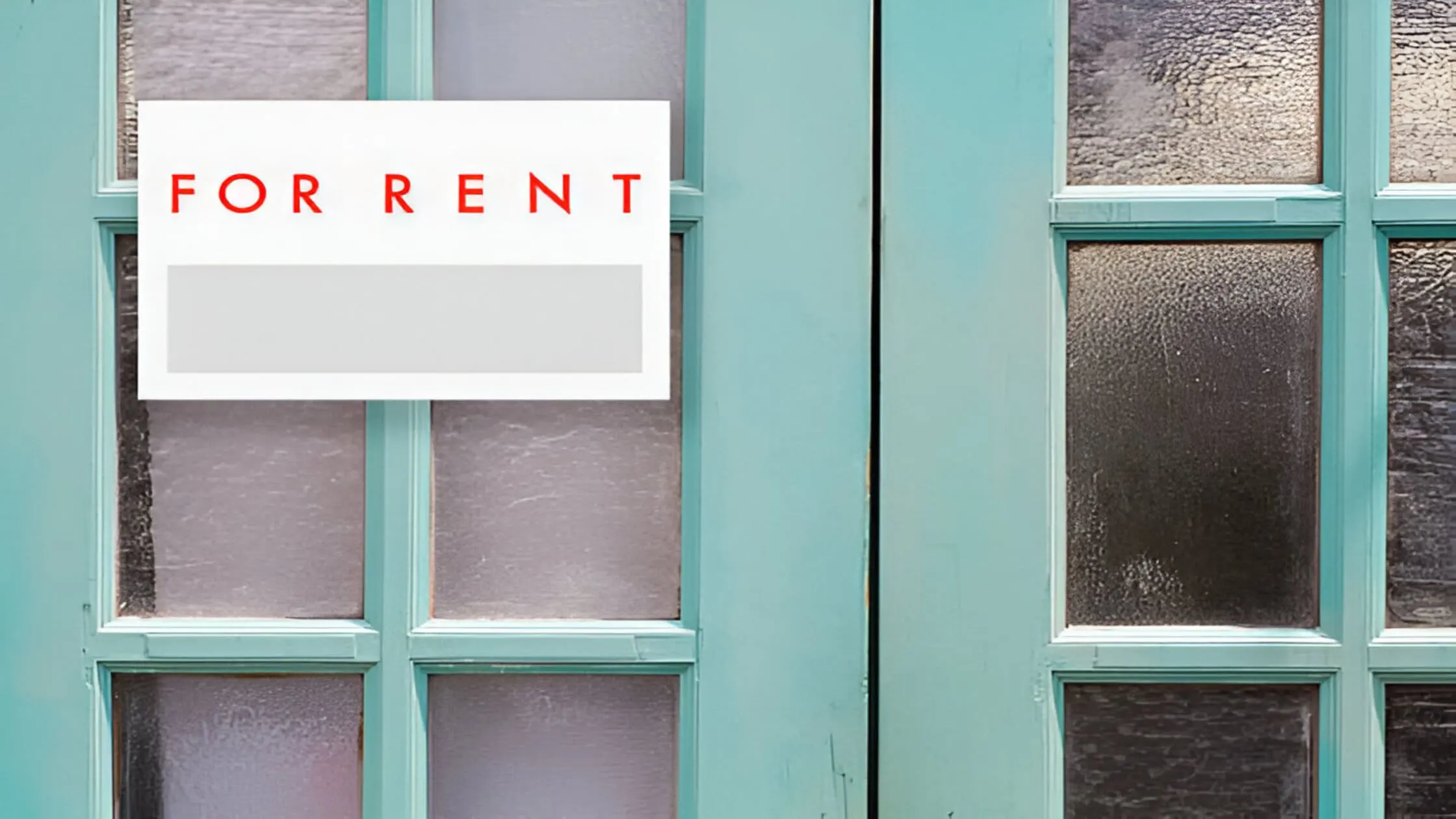
Florida’s rental market and Senate Bill 362 suggest the state will keep supporting PTSRs as a helpful tool. The goal is to make rental applications cheaper and faster while keeping rights safe for landlords and tenants.
Key points to watch:
- Voluntary Use and No Extra Fees: Florida will encourage landlords to accept PTSRs, but will make sure no extra fees are charged. This saves renters money and helps more people apply.
- Possible Future Rules: Lawmakers might call for stronger laws that require landlords to accept PTSRs if they work well.
- Landlords Should Prepare: Landlords should create clear policies for PTSR use. These should include clear standards. For example, landlords can require a minimum credit score (above 650) and a debt-to-income ratio (under 40%). This helps landlords screen fairly and transparently.
- Stay Updated: Landlords and property managers should keep up with legal changes so they can adjust their screening procedures as needed.
For the latest updates and full details, visit the official Florida Senate Bill 362 (SB 362) page. It offers the full text and progress of the bill.. In short, Florida is moving toward a fairer, more flexible tenant screening system. Using PTSRs fits with what many states are doing. It helps tenants save money, speeds up rental decisions, and keeps protections under Florida tenant screening laws.
Conclusion
The Florida portable tenant screening report offers a fresh way to cut rental costs and save time. Tenants can share one report for many applications, avoiding repeated fees. Landlords receive fast, clear details on credit, evictions, and backgrounds. For example, a renter using a PTSR can quickly apply for apartments without paying multiple screening fees.
Senate Bill 362 supports voluntary use and sets standards, but does not yet require acceptance. Landlords should prepare clear policies about credit scores and rental history. Tenants should keep reports updated and honest. Staying informed about Florida tenant screening laws and rental application rules helps both sides avoid surprises. This tool is key to smoother, fairer renting in Florida’s changing market.
FAQs
Is a landlord required to accept PTSRs in Florida?
No. Landlords in Florida are not required by law to accept portable or reusable tenant screening reports. Acceptance is voluntary. However, the pending Senate Bill 362 (SB 362) proposes that if a landlord accepts a PTSR, they cannot charge an application fee for processing it.
If I provide a PTSR, do I still pay an application fee?
If a landlord accepts your portable tenant screening report, they cannot charge you an additional application fee for that report. However, if they do not accept the PTSR, you may need to complete a separate tenant background check and pay the associated fees.
What shows up on a tenant screening report?
A tenant screening report from LeaseRunner includes cash flow reports, eviction records, criminal background checks, employment verification, and landlord references. It provides a full picture of a tenant’s rental and financial history to help landlords make informed decisions.
How long does it take to get a tenant screening report?
With LeaseRunner, tenant screening reports are typically available within 24 to 72 hours after the tenant submits consent and payment, allowing for a quick and efficient rental application process.
Where to get a portable tenant screening report?
LeaseRunner offers portable tenant screening reports that tenants can purchase and reuse for multiple rental applications, saving time and money by avoiding repeated screenings. The reports comply with Florida tenant screening laws and federal guidelines.
